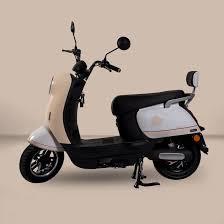Electric bikes, commonly known as e-bikes, have taken the world by storm. With rising fuel costs, growing environmental concerns, and the need for convenient commuting, e-bikes are no longer a niche choice—they are rapidly becoming mainstream. But the big question remains: are e-bikes the future of sustainable transportation? To answer that, let’s dive into what makes e-bikes unique, why they’re gaining popularity, and how they compare to traditional bicycles and other modes of transport.

What Exactly Are E-Bikes?
At their core, e-bikes are bicycles equipped with an integrated electric motor that provides pedal assistance. This motor can be powered by rechargeable lithium-ion batteries, making the ride smoother and less physically demanding. Unlike scooters or motorcycles, e-bikes still rely on pedaling, but the electric assistance helps riders go further, faster, and with less effort.
The technology behind e-bikes has evolved significantly. Today’s models feature lightweight frames, efficient motors, and smart battery systems that can cover ranges between 30 to 100 miles on a single charge, depending on usage and terrain. Riders can adjust assistance levels, switching from minimal help to full throttle, giving them flexibility in different riding conditions.
Why Are E-Bikes Becoming So Popular?
The popularity of electric bikes is fueled by a mix of practicality, affordability, and eco-consciousness. Cities worldwide are facing traffic congestion, pollution, and rising fuel prices. In such a scenario, e-bikes provide a viable alternative.
They are cost-effective compared to cars and motorcycles, requiring minimal maintenance and no fuel expenses. Charging an e-bike costs just a fraction of what it takes to fuel a car, making it appealing for daily commuters. Moreover, governments in many countries are offering subsidies and incentives to promote e-bike adoption as part of broader sustainable mobility initiatives.
Another reason for their rise is accessibility. E-bikes open cycling to a wider audience—people who may not be physically fit enough for traditional cycling can still enjoy biking without overexerting themselves. This inclusivity makes them an excellent choice for seniors, individuals recovering from health issues, and those who live in hilly regions.
E-Bikes vs Traditional Bicycles: Which One Should You Choose?
While traditional bicycles remain popular for fitness enthusiasts and casual riders, e-bikes bring in a new level of versatility. A standard bike relies solely on the rider’s physical effort, which can be challenging during long commutes or uphill rides. In contrast, e-bikes provide a boost, making cycling easier and more efficient.
Some purists argue that e-bikes reduce the exercise benefits of cycling. However, studies have shown that e-bike users still get significant physical activity because they pedal more frequently and cover longer distances than regular cyclists. In other words, an e-bike doesn’t replace exercise—it enhances it by making cycling more accessible and enjoyable.
Are E-Bikes Really Environmentally Friendly?
One of the biggest selling points of e-bikes is their eco-friendly reputation. Unlike cars, which emit harmful greenhouse gases, e-bikes produce zero direct emissions. The electricity needed to charge them has a much lower environmental impact compared to burning fossil fuels.
Yes, the production of batteries has environmental costs, but when measured against the lifetime emissions of cars or motorcycles, e-bikes remain significantly greener. For urban commutes especially, replacing car trips with e-bike rides can drastically cut down on air pollution and carbon emissions. Cities like Amsterdam and Copenhagen are already showcasing how widespread cycling—including e-bike usage—can create cleaner and healthier urban environments.
The Health and Lifestyle Benefits of Riding E-Bikes
Beyond transportation, e-bikes also contribute to personal well-being. Riding regularly helps improve cardiovascular health, muscle strength, and mental wellness. Since the pedal-assist mode reduces strain, more people are likely to ride longer and more frequently, making e-bikes a practical fitness tool.
Additionally, commuting via e-bike is far less stressful than being stuck in traffic. Riders save time, enjoy the fresh air, and often arrive at work energized instead of exhausted. With cities building better cycling infrastructure, riding e-bikes is becoming safer and more enjoyable than ever before.
Challenges and Concerns Surrounding E-Bikes
Despite their advantages, e-bikes face challenges. The higher upfront cost compared to traditional bicycles can be a barrier, though falling prices and government incentives are easing this issue. Battery charging and lifespan are also concerns, especially for long-distance riders. Safety is another debate, as faster e-bike speeds can increase the risk of accidents if proper regulations and cycling infrastructure are not in place.
Moreover, in some regions, there is confusion about whether e-bikes should be classified as bicycles or motor vehicles, leading to inconsistent traffic rules. Clear policies and standardized regulations will be essential for the long-term adoption of e-bikes.
The Future of E-Bikes in Urban Mobility
Looking ahead, the role of electric bikes in future transportation systems appears bright. As cities aim to reduce carbon emissions and embrace smart mobility solutions, e-bikes are expected to play a central role. Technological advancements will continue to improve battery life, charging efficiency, and lightweight designs, making them even more practical for daily use.
We can also expect e-bikes to integrate more with smart cities—for example, through shared e-bike rental services, app-based navigation, and eco-friendly charging stations powered by renewable energy. With growing global attention on sustainable living, e-bikes are well-positioned to become a mainstream commuting option.
Conclusion: Are E-Bikes Here to Stay?
So, are e-bikes truly the future of sustainable transportation? The answer seems to be yes. They offer a unique blend of affordability, convenience, fitness, and eco-friendliness that few other modes of transport can match. While challenges like regulation and infrastructure remain, the overall trajectory of e-bike adoption is undeniably upward.
For commuters seeking a smarter, greener, and healthier way to travel, electric bikes are not just a trend—they are a transformation. As technology evolves and awareness grows, e-bikes will likely continue to shape the future of urban mobility, making our cities cleaner, healthier, and more sustainable.